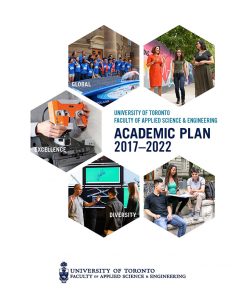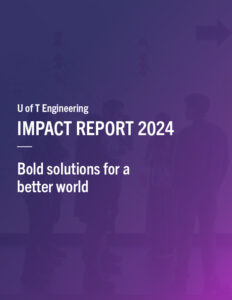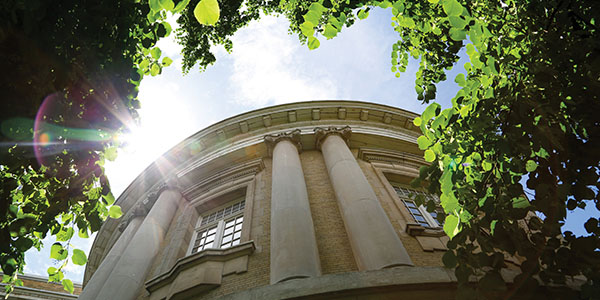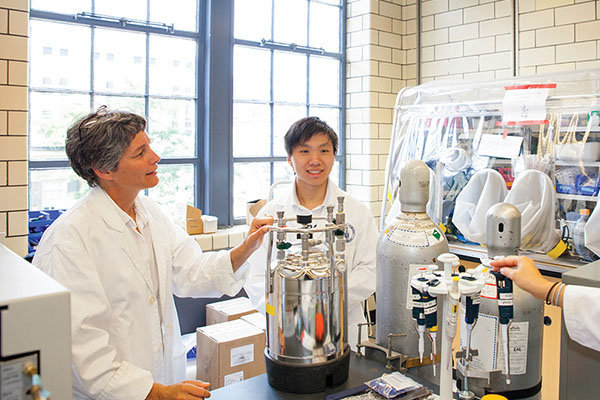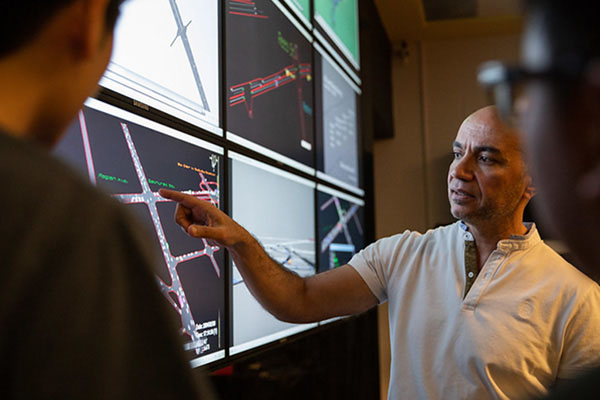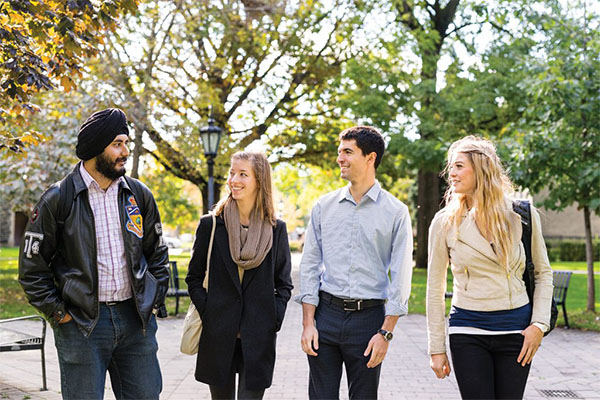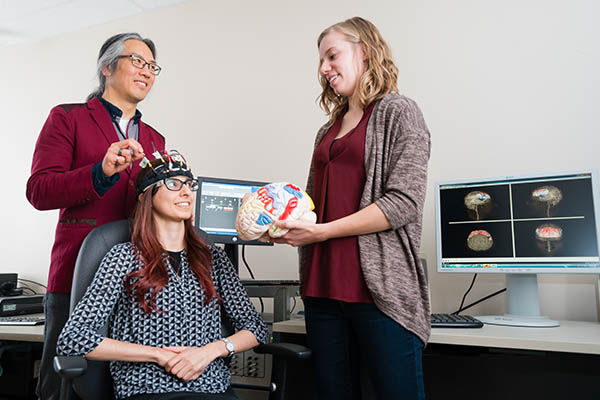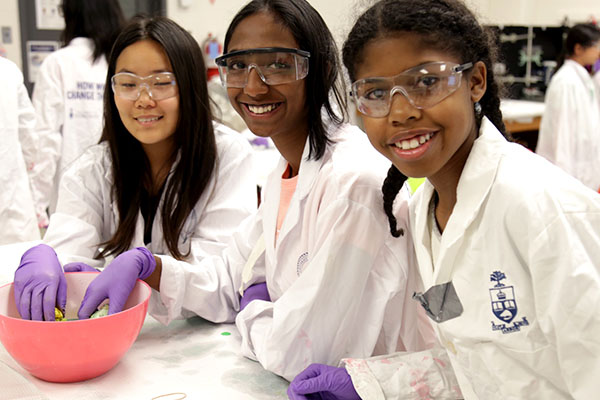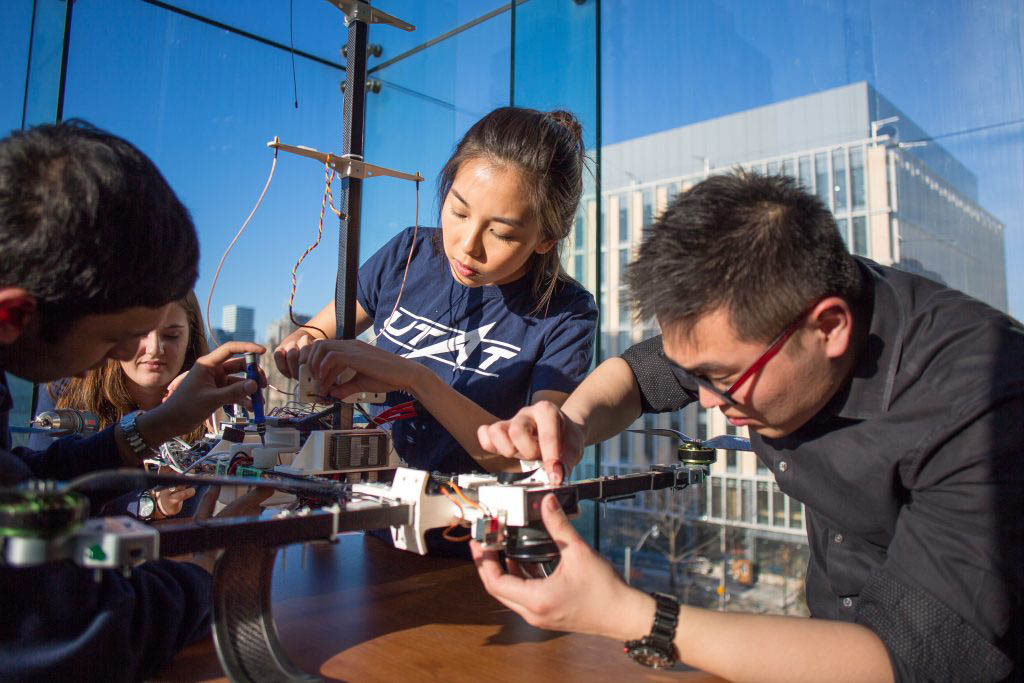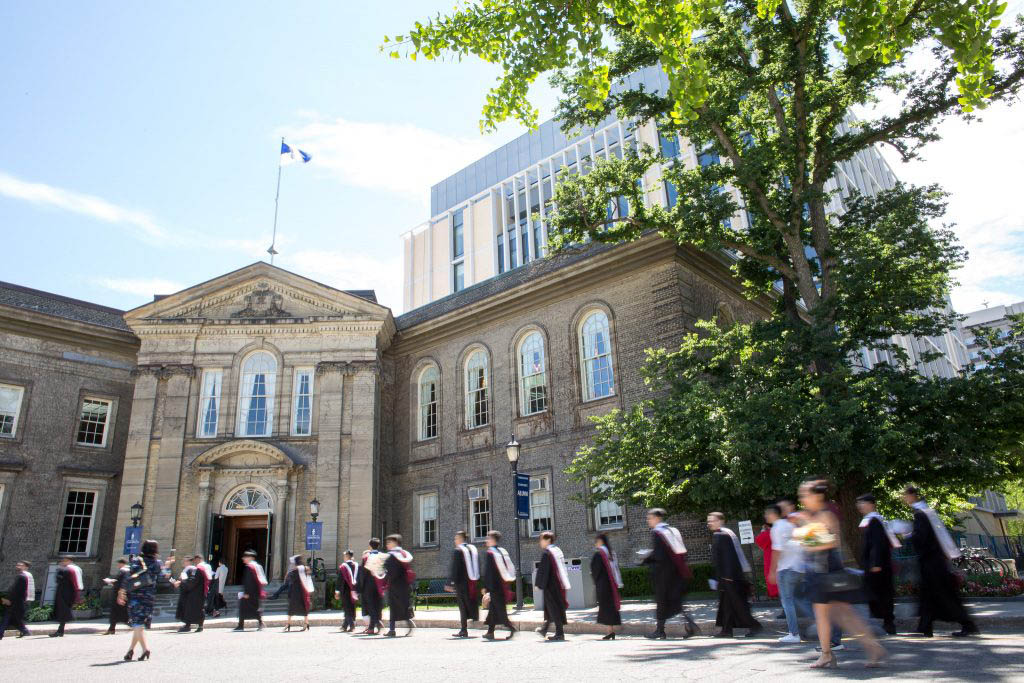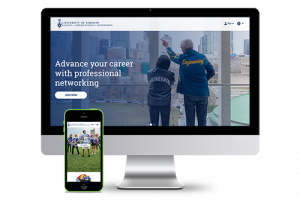Advancing Engineering Research
U of T Engineering has a long history of challenging what is possible and pushing the limits in pursuit of a better future. U of T’s Defy Gravity campaign focuses on furthering our research in promoting healthy societies, creating sustainable and thriving global communities and designing intelligent machines for good. Our research drives positive change.
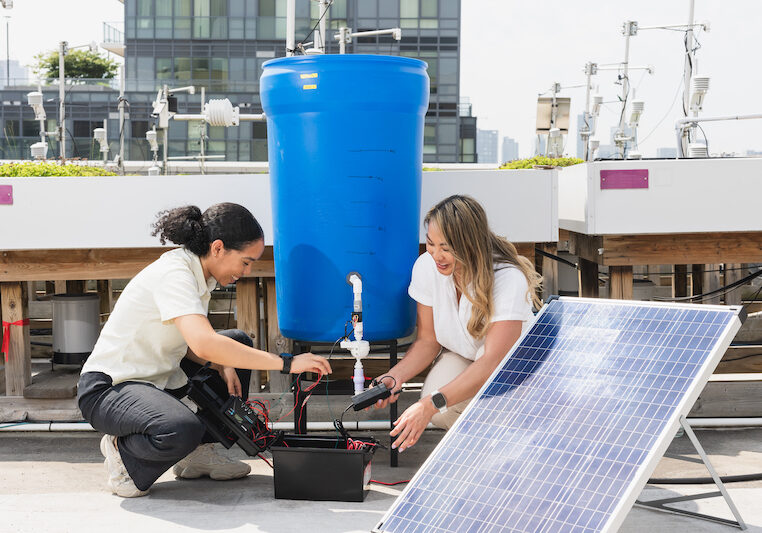
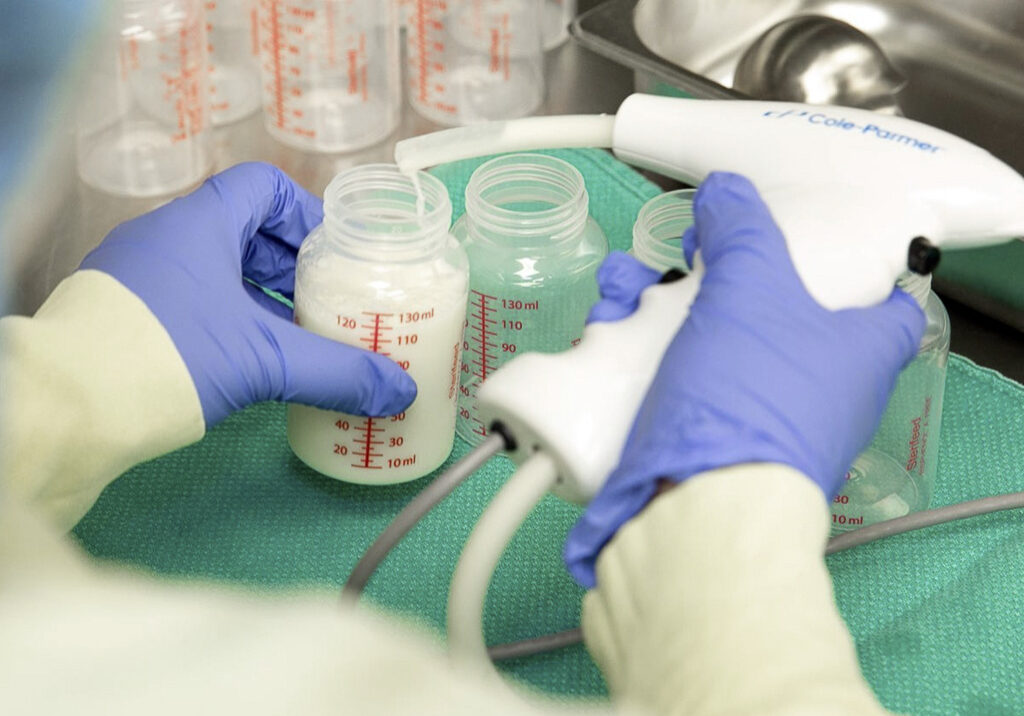
Promoting healthy societies
Leveraging their unique subject matter expertise and perspectives, U of T Engineering researchers developed innovative approaches to cultivatung healthy and flourishing communities.
For example, Professor Enid Montague (MIE) is using automation tools to alleviate overburdened health-care systems and engineer a better health-care experience. Meanwhile, Professor Timothy Chan (MIE) worked with Mount Sinai Hospital’s Rogers Hixon Ontario Human Milk Bank in exploring how machine learning technologies could optimize macronutrient content of pooled human donor milk recipes.
In addition, Professor Hai-Ling Cheng (BME, ECE) and graduate student Alex Mertens (ECE PhD student) have developed a rapid magnetic resonance imaging (MRI) technique to help doctors better detect and diagnose tumours.
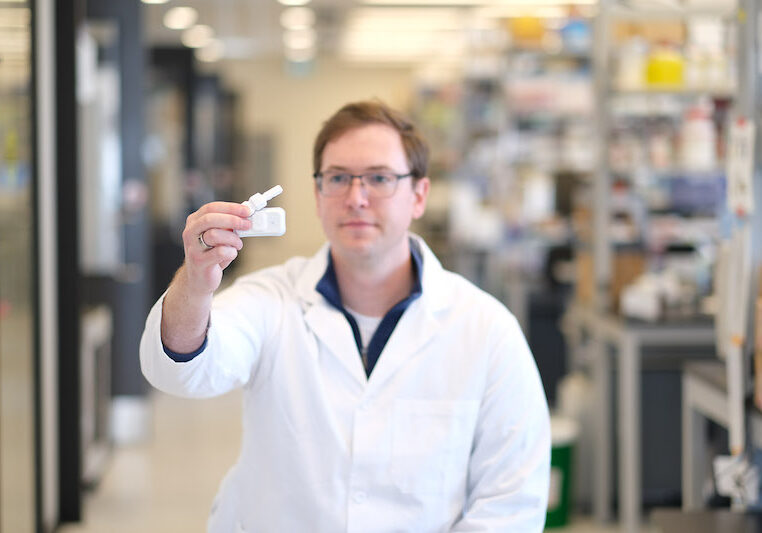
Designing intelligent machines for good
U of T Engineering researchers remain focused on innovations that will improve the lives of millions around the world.
In May, Professor Nicolas Papernot (ECE) received an AI2050 Schmidt Sciences Early Career Fellowship for his work developing a technical framework for future AI regulation. And a $1.45-million NSERC-Alliance-Mitacs Accelerate grant enabled Professor Deepa Kundur (ECE) to lead a multidisciplinary research group that will develop quantum-based technology solutions to defend power utilities against future cyberattacks.
“I want my work to help physicians avoid burn out and feel less burdened, and I also want to expand access to care for more communities in a way that is more equitable.”
– Professor Enid Montague (MIE)
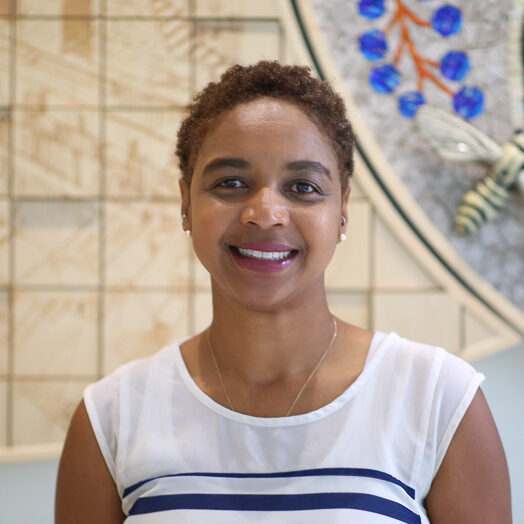
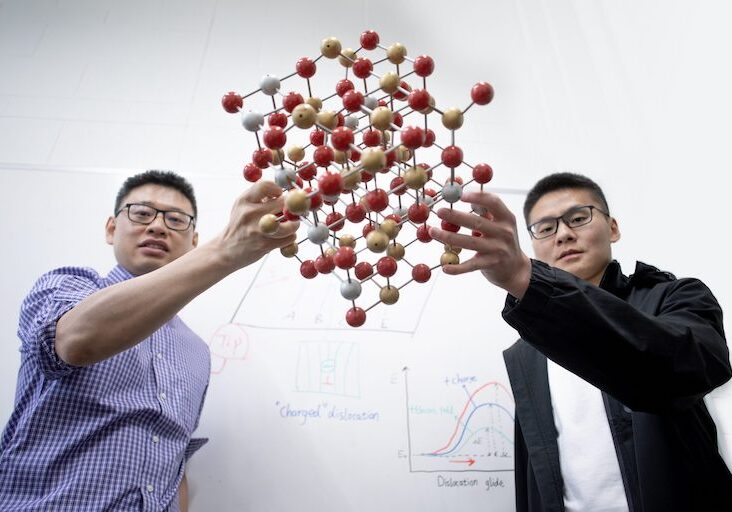
Exploring new horizons in materials science
From speeding up the design of next-generation biomedical implants and aerospace materials to using electric fields to control the movement of defects in crystals — with an aim to improve the properties and performance of semiconductors — Professor Yu Zou (MSE, MIE) and his team have made great strides in materials science.
For his next project, Zou will be leveraging the tools self-driving labs offer in his work to speed up the development of improved materials for hip and knee replacements.
Toward a greener future
In collaboration with an international team, U of T Engineering researchers have developed a catalyst that increases both the stability and efficiency of a system that converts carbon dioxide (CO2) into fuels or plastic precursors.
Advances in nuclear energy
Over the next three years, Professors Greg Jamieson (MIE, ISTEP), Oh-Sung Kwon (CivMin) and Yu Zou (MSE, MIE) will be leading projects aimed at improving the design of small modular reactors, from the materials used in their manufacture to the ways in which they are operated.
Online simulator could help glaucoma patients and doctors
ECE professor Willy Wong, graduate student Yan Li (ECE PhD student) and their collaborators have built an online simulator that gives an improved visual representation of the deterioration caused by glaucoma, from the patient’s perspective. Their model, which was described in Translational Vision Science & Technology, takes into consideration the physiological mechanism of the eye.

